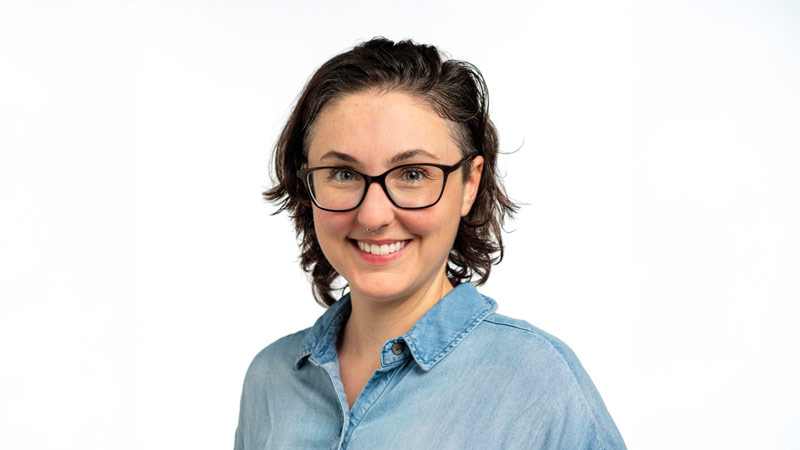Breaking the silence: Researchers uncovering the hidden struggles of Canada's queer community
Author: Angie Deveau
Posted on Nov 24, 2023
Category: UNB Fredericton , Research , UNB Saint John

In a world where the spotlight often highlights progress and acceptance, Canada's queer community has its own set of unique challenges. The need for increased understanding and support is at the heart of their journey.
Dr. Celeste Orr, a researcher and assistant professor in the department of sociology and the Wendy J. Robbins Professor in Gender and Women’s Studies at the University of New Brunswick (UNB), is dedicated to shedding light on the diverse experiences within the queer community in Canada.
In their ground-breaking study, “Anticipated Violence and Queer Lives: Apprehensions and Anxieties as part of Queer Subjectivities,” Orr and their co-investigator, Dr. Nicholas Hrynyk, a researcher and assistant teaching professor in the department of philosophy, history and politics at Thompson Rivers University, are examining the often-overlooked issue of anticipated violence within the Canadian queer community.
Their research, which is funded by the Social Sciences and Humanities Research Council (SSHRC), reaches beyond theory, aiming to make a real impacta on queer individuals across the country.
Their study explores how queer community members anticipate violence, even if it doesn't always manifest in physical form. And the trauma of such anticipation has been ingrained into many queer individuals of all ages. This has taught them to be vigilant in a world with potential threats.
“The impetus of the research that Nick and I and so many other scholars and activists and advocates have noticed is that queerphobic violence has been on the rise and remains on the rise in Canada,” said Orr. “And likewise anti-queer and anti-trans policies and sentiments are on the rise.”
They said it is a scary time for queer people, particularly for the most marginalized queer folks like racialized queer people, trans people and young queer people.
“Many queer people regularly anticipate violence in the home, at school, at work, and they are expecting policies that will enact violence on them,” explained Orr. “As a result, we saw an urgent need to ask questions.”
Orr and Hrynyk are working to address the pervasive fear that shapes their queer community members’ daily lives, choices and sense of safety.
Hrynyk said one significant turning point noted in their research is the intersection of the Black Lives Matter movement with the queer community.
“Black Lives Matter Toronto began making inroads in the queer community when they stalled the Toronto Pride parade in 2016,” he said. “From there on forward, we're seeing efforts to address those legacies of intersectional oppression within the queer community and outside of it. But we still have a long way to go.”
Orr also emphasized that this history of anticipated violence doesn't exist in isolation. They point out that queer people have anticipated violence long before the recent surge in queerphobic actions in society.
“The idea that queers are somehow asking for violence has permeated the community, leading them to teach each other about the perceived risks they face based on their appearance or actions,” they said.
Orr and Hrynyk argue that anticipated violence cannot be seen in a vacuum. It is deeply rooted in historical complexities, including Canada's colonial and racist history.
They said the dominant face of the queer community, often portrayed as white cisgender gay men with six-pack abs, presents a limited and unrealistic view of what the community is like.
“The intersection of queerness with other identities such as disability, race and gender play a crucial role in the anticipation of violence,” said Hrynyk. “Different individuals encounter various forms of violence, sometimes subtle and sometimes overt. These forms of violence intersect and influence each other, leading to nuanced experiences within the queer community.”
Looking to the future, Orr and Hrynyk are passionate about knowledge mobilization and sharing their findings with the community.
They said their research is not meant to sit on a shelf; it's a living, breathing project that will continue to evolve.
"We plan to create resources accessible to undergraduate students and laypeople to navigate the complex world of anticipated violence,” said Orr. “We envision working with queer organizations and creating a network that spans the country to serve marginalized individuals better.”
